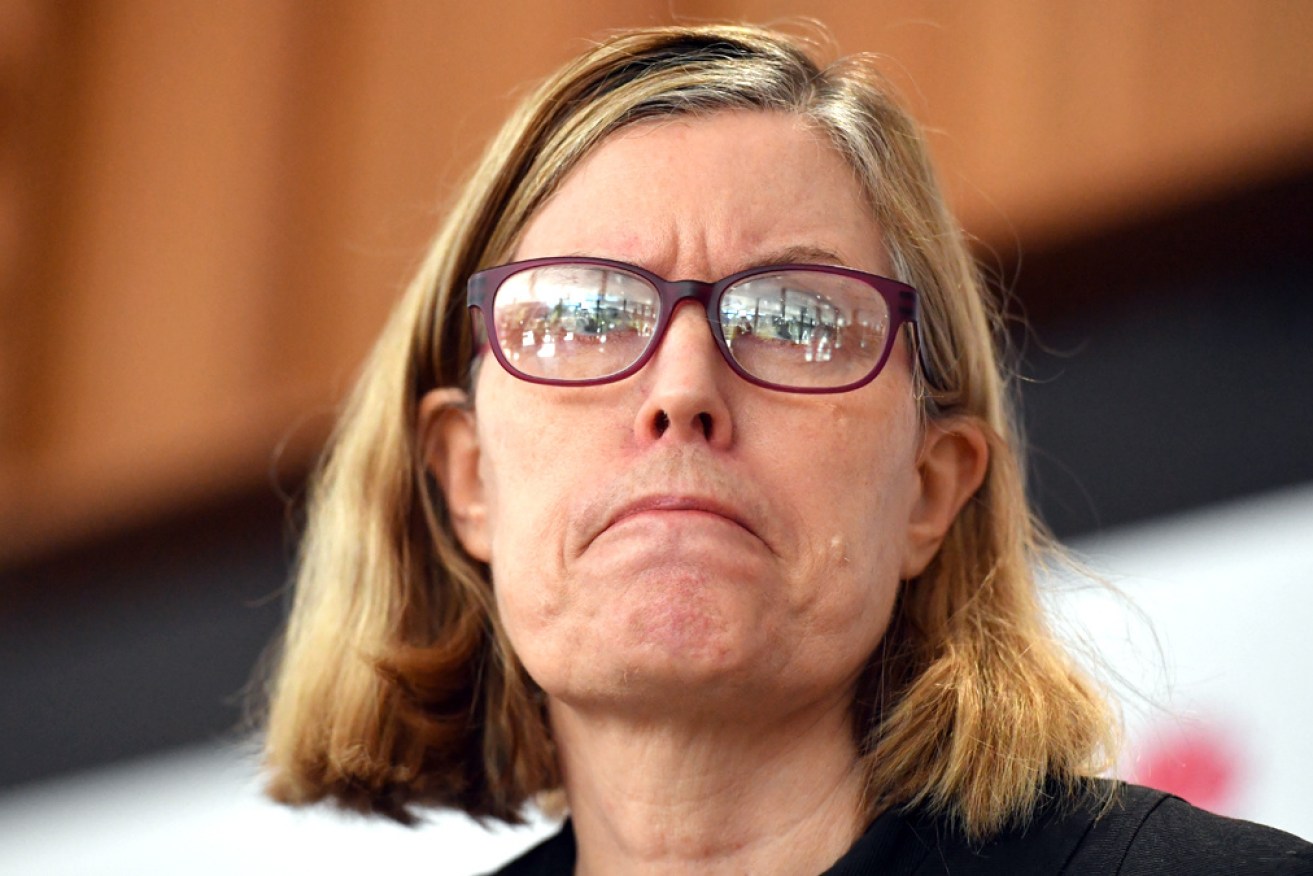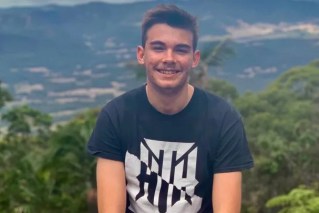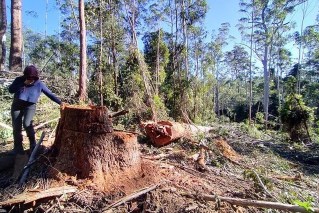‘Be very careful’: New suburbs on alert as Sydney’s deadly wave spreads


NSW chief health officer Kerry Chant has warned about the spread of COVID into yet more Sydney suburbs.
Virus cases have again soared in NSW, with alarm rising for more Sydney suburbs after another grim pandemic record.
NSW confirmed another 1290 local COVID infections on Monday, its highest daily total yet.
Health authorities say more than 80 per cent of coronavirus cases are still coming from Sydney’s south and south-west. Cases continue to skyrocket in suburbs such as Guildford, Merrylands, Auburn, Greenacre, Punchbowl and surrounds.
But chief health officer Kerry Chant said there was increasing “spillover” outside those areas, sparking increased alarm for other suburbs.
“Be very careful in the way you move about in your community,” she said.
“We are also seeing some spillover into adjacent local government areas and that is usually from workers going into those local government areas of concern and bringing them back and affecting the families.
“Ryde and Meadowbank and some inner west suburbs such as Marrickville where we are seeing the introduction [of the virus] in factories and other workplaces. It is important that all workplaces consider their Covid safe plans.”
NSW also reported four more COVID fatalities on Monday, taking its toll from the current outbreak to 93.
Among the latest deaths was the first in regional NSW. The Western NSW Local Health District has confirmed the Dubbo man, who was in his 50s, was Indigenous. He was unvaccinated.
The latest deaths take Australia’s toll from the pandemic to 1003.
The number of patients in NSW hospitals has also continued to spike. There are now 840 COVID-19 cases in the state’s hospitals – up nearly 50 per cent in a week.
They include 137 in intensive care, 48 of them on ventilators.
Premier Gladys Berejiklian acknowledged the state’s hospital system was feeling the pressure of the ever-increasing caseload – and said worse was likely to come.
“We are hopeful that once we get those vaccination rates up, the rate of hospitalisation declines and we also know from the information we have, the accumulation of cases and the number unvaccinated, that October is likely to be our worse month in terms of pressure on the system – and that is why we have gearing up for that and we have been nearly two years,” she said.
“Our hospital system is under pressure. Will we need to do things differently? Of course, we will.
“We will need to manage things differently because we are in the middle of a pandemic, But we will cope and that is why we are keeping a keen eye on those figures.”
By Monday morning NSW had administered 6.8 million coronavirus vaccine doses, with nearly two-thirds of its adult population having had at least one shot. But Ms Berejiklian said cases would keep coming even after the target of 80 per cent was hit.
“If the majority of the population is vaccinated, the majority of those cases will not need to be in hospital and that is why it is important to focus on those numbers to ensure our hospital system is not overwhelmed,” she said.
“The health system is prepared, but will it stretch? Absolutely.”
On Sunday, the NSW government committed to restoring personal freedoms to fully vaccinated residents once the state hit 70 per cent double-dose coverage, regardless of COVID-19 case numbers.
This is expected in roughly mid-October.
But Dr Chant said on Monday that regular booster shots would likely be needed for some years – at least until vaccines were developed that provided more permanent COVID-19 immunity.
“We need to get used to being vaccinated with COVID vaccines for the future … I can’t see COVID is not going to be with us forever,” she said.
“As a public health doctor we always want to have diseases go, to be totally eliminated, but that is not on the horizon in the near future.
“Booster doses and repeat doses will be part of that.”
QR code check-ins, yet-to-be-developed vaccination passports, density requirements and mask use will be long-term suppression tools once vaccine targets are reached.







